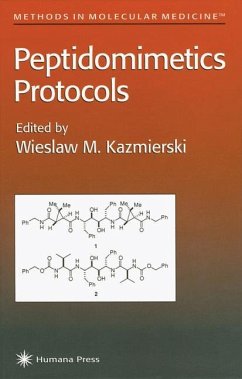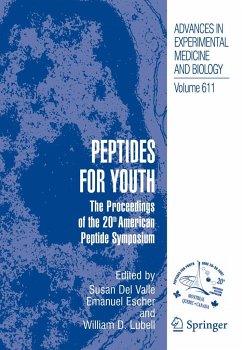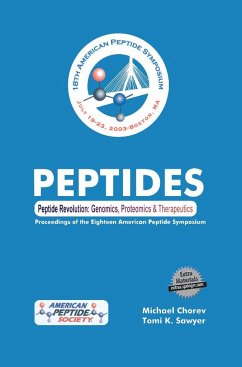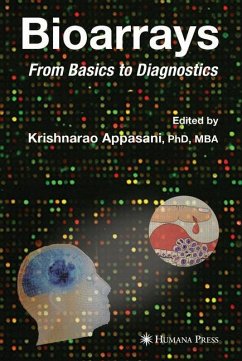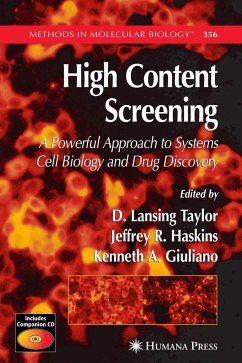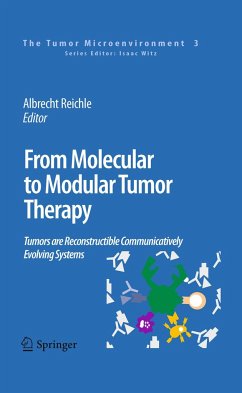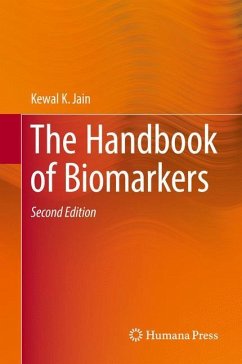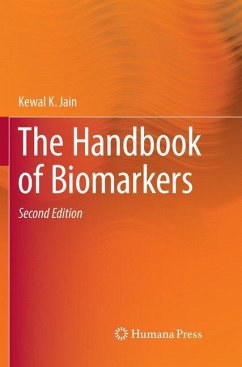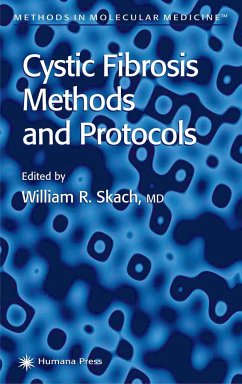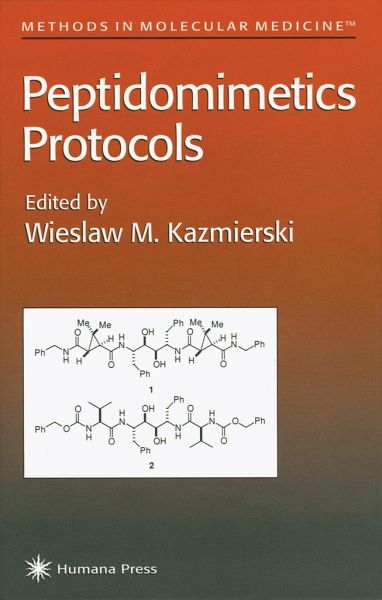
Peptidomimetics Protocols
Versandkostenfrei!
Versandfertig in 6-10 Tagen
76,99 €
inkl. MwSt.

PAYBACK Punkte
38 °P sammeln!
Many physiologically important receptors and enzymes are regulated by their endogenous ligands and inhibitors. Nature chose to utilize these p- tides as chemical switches since they can be efficiently synthesized and - graded in cells, thus providing an immediate response to a fast changing environment. Such properties, so critical in cell survival, make peptides less than ideal drug candidates. Other frequently desired properties in drug m- ecules include oral bioavailability, the ability to cross membranes, including the blood-brain barrier, and sufficient stability for administration 1-2 ti...
Many physiologically important receptors and enzymes are regulated by their endogenous ligands and inhibitors. Nature chose to utilize these p- tides as chemical switches since they can be efficiently synthesized and - graded in cells, thus providing an immediate response to a fast changing environment. Such properties, so critical in cell survival, make peptides less than ideal drug candidates. Other frequently desired properties in drug m- ecules include oral bioavailability, the ability to cross membranes, including the blood-brain barrier, and sufficient stability for administration 1-2 times a day. In spite of these obstacles, some natural peptides and proteins are ind- putably successful medicines and have become drugs of choice. Further - vances in peptide-based pharmaceuticals are critically dependent on both new delivery methods and new chemical approaches to the conversion of these molecules to druglike entities. In addition, peptides are also the natural sta- ing points for optimization of their pharamacological and chemical prop- ties, which may lead to superior drugs. Peptidomimetics Protocols deals with both aspects of peptide pharmaceuticals, through the tools of modern s- thetic and medicinal chemistry. The last decade has witnessed a steady stream of new synthetic approaches to peptide mimetics, compounds that replace phy- ologically vulnerable peptide functionalities with chemical modules of - creased stability and cellular penetration. The chapters have been written by both academic and industrial chemists, and focus on the practical synthetic preparation of peptide mimetics.





